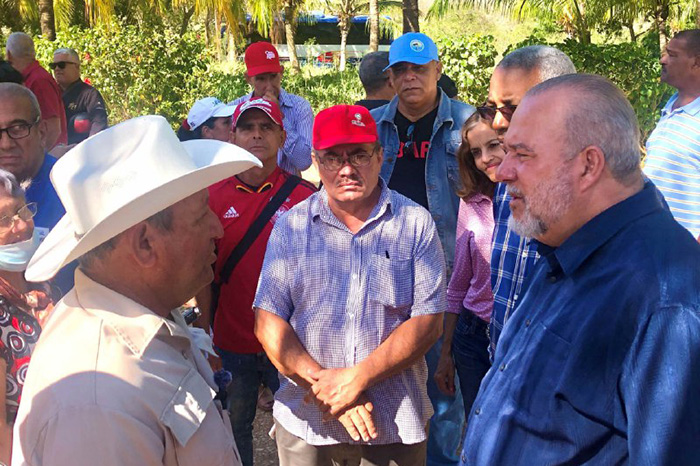Cuban Prime Minister calls to take advantage of local resources in Holguín
- Written by Redacción ¡ahora!
- Published in Holguin
- Hits: 791
 Photo: Germán Veloz Placencia
Photo: Germán Veloz Placencia
Manuel Marrero Cruz, Cuba's Prime Minister, on Saturday called for making use of local resources to contribute to solve the main problems faced by the population, during a tour of productive centers and communities in the municipality of Gibara, in Holguín province.
During a visit to the People´s Council of Floro Pérez, he proposed the creation of an organoponic garden, to improve quality of life, generate employment and produce food, as well as encouraging cultivation in home gardens and available areas for family self-sufficiency.
In El Vapor dairy farm, which maintains 600 Siboney cattle, he praised the results achieved by its workers despite the energy crisis and the tightening of the U.S. economic, commercial and financial blockade against Cuba.
Referring to the recovery of the National Electric Power System, Marrero Cruz highlighted the importance of continuing investments in photovoltaic parks to recover the National Electric System, with a strategy aimed at adding more than 500 megawatts to improve the energy situation during the summer, benefiting the economy and the population.
The also member of the Political Bureau of the Central Committee of the Communist Party of Cuba (CCPCC), showed concern for vulnerable elderly people of the territory, affected by the aging population, and the difficulties of transport used in the transfer to the provincial and municipal capitals.
He oriented to direct efforts to strengthen follow-up for isolated or disabled seniors, and facilitate administrative procedures in hard-to-reach communities by sending officials weekly, including for medicine sales.
Marrero Cruz, deputy to the National Assembly of People's Power for the municipality of Gibara, exchanged with workers of a roofing plant of the Construction Materials Company and stressed the need for a change in mindset among leadership cadres to seek alternatives in the current context, exercise popular control over state resources, empower leaders committed to the collective interest, and eliminate bureaucracy. (Source: ACN)
